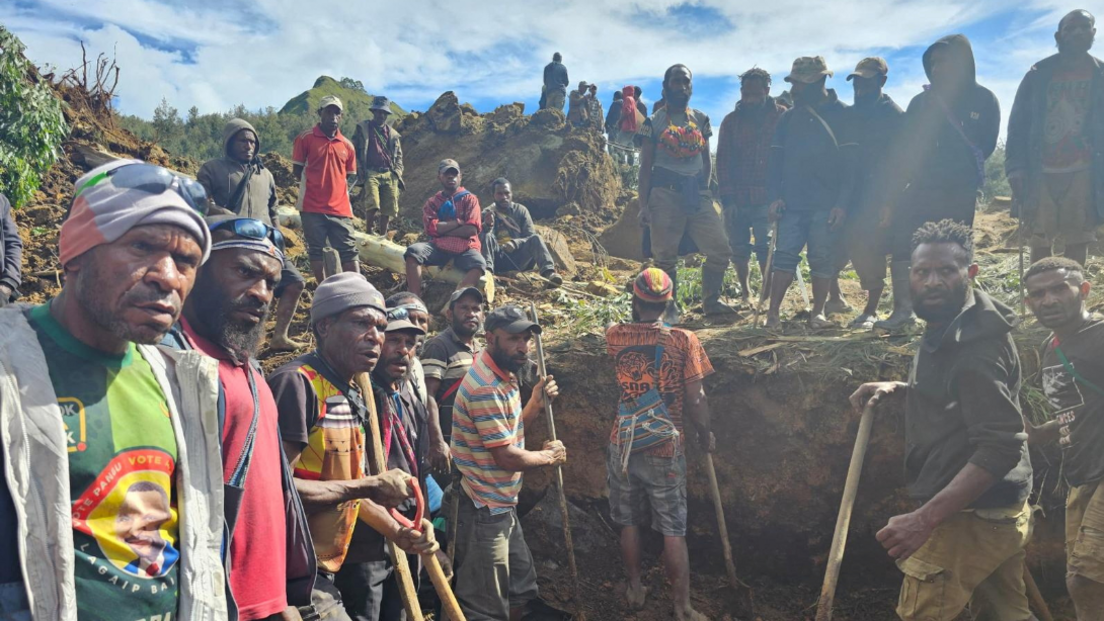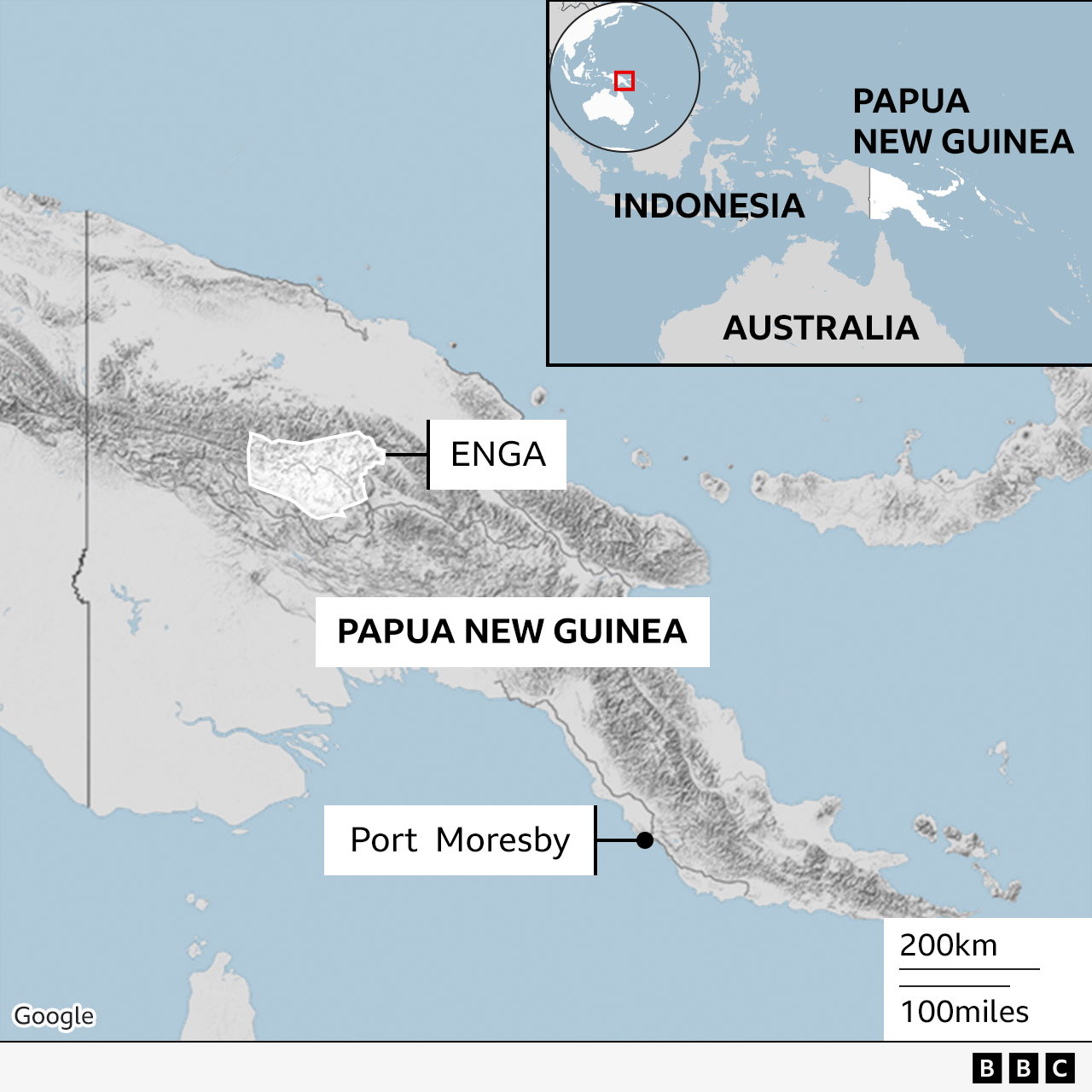UN fears Papua New Guinea landslide buried 670 people

Helpers are trying to rescue people buried by the landslide
- Published
About 670 people are estimated to be buried under a massive landslide in Papua New Guinea, a UN official says.
The head of the International Organization for Migration in the country, Serhan Aktoprak, said the impact of Friday's landslide in the isolated Enga province was greater than initially thought.
"There are an estimated 150-plus houses now buried," Mr Aktoprak said.
The affected areas are in the highlands of Enga, in the north of the island nation in the south-west Pacific.
Mr Aktoprak said rescuers were at risk because "the land still sliding" and "rocks are still falling".
"The water is running and this is creating a massive risk for everyone involved," he said.
In addition, local residents have been forced to abandon 250 homes in areas not directly affected by the landslide after cracks began to appear in the ground.
There are nearly 4,000 people living in the area.
But Care Australia, the humanitarian agency which is helping with relief efforts, warned that the number affected was "likely to be higher" because of an influx of people escaping tribal conflicts in neighbouring areas.

At least 1,000 people have been displaced as a result of the disaster.
Mr Aktoprak said gardens that had grown food and water supplies were almost completely wiped out.
The landslide happened at around 03:00 local time on Friday (17:00 GMT on Thursday), when people were more likely to be sleeping.
"We still don’t know the exact number of fatalities from the landslide, and may not know for some time," said a spokesperson for Care Australia.
"However, the time that the landslide occurred suggests that the death toll will rise."
By Sunday, just five bodies had been recovered alongside the partial remains of another.
Mr Aktoprak told the BBC there were a number of challenges facing teams trying to recover bodies, including reluctance by some grieving relatives to let heavy machinery near their loved ones.
Instead, he said, "people are using digging sticks, spades, large agricultural forks to remove the bodies buried under the soil".
Debris from the landslide, which includes large boulders, trees and displaced soil, is up to 8m (26ft) deep in some areas.
There is only one main road into Enga Province and Care Australia said debris had fallen across large swathes of it, limiting access to the rescue site.
Tribal violence along the main road could complicate relief efforts, according to Mr Aktoprak.
Mr Aktoprak said the unrest was unrelated to the landslide, adding: "In one day alone, a total of eight persons had been killed, five business stores and 30 houses had been burnt down."
Local communities have started distributing food and water to those people affected by the landslide.
Provincial authorities will deploy aid including food, water and hygiene products from Monday.
The International Organization for Migration, which is part of the United Nations, is providing non-food items such as blankets, bedding and mattresses.
As of Sunday, the National Disaster Centre, which is part of the Papua New Guinea government, had not requested help from other countries, said Mr Aktoprak.
Papua New Guinea has a population of more than 11.7 million people. With around 850 indigenous languages, it is the most linguistically diverse country on Earth, according to the World Bank.
Papua New Guinea: Many feared dead in landslide
Get in touch
How have you been affected by the issues raised in this story?